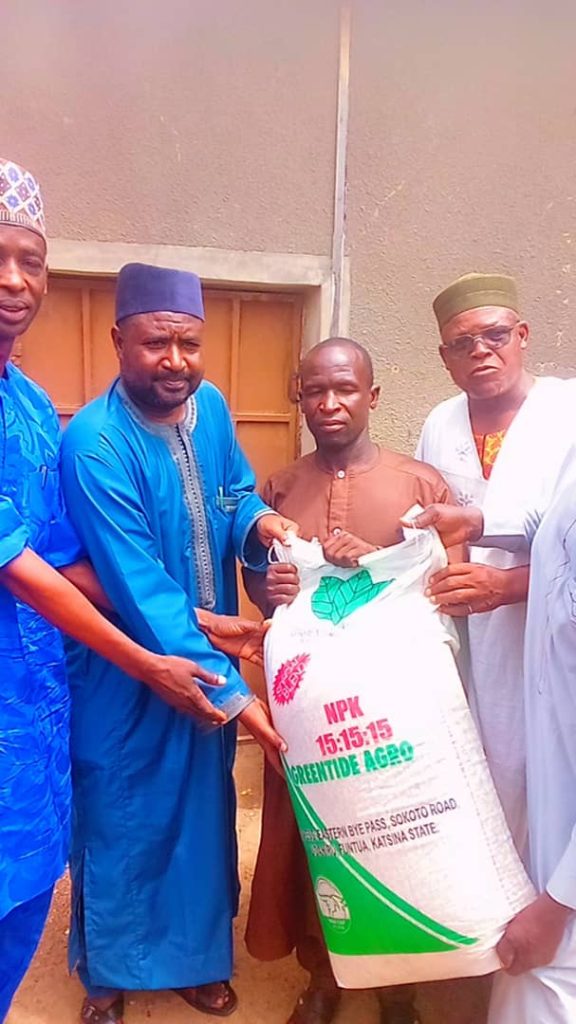Sani Haruna
The Wowo Surajo Empowerment Foundation has distributed farming inputs to 100 smallholder farmers in Dutsinma Local Government Area of Katsina State, as part of its agricultural empowerment programme aimed at boosting food security and engaging youth in productive ventures.
Speaking at the distribution ceremony, Alhaji Shamsu Wowo Surajo, Chairman of the Foundation, said the intervention was designed to complement government efforts toward improving food and cash crop production, especially as the 2025 rainy season gets underway.
Kano Livestock Fattening Scheme: A Game-Changer for Rural Empowerment Amid Criticism
“Agriculture remains the backbone of our economy, employing over 70% of the population. Our Foundation is committed to supporting this sector through targeted interventions that promote youth empowerment, productivity, and food security,” said Surajo, who is also a philanthropist and astute politician.
Breakdown of Input Packages
According to Surajo, beneficiaries received tailored farming inputs based on their chosen crop:
For maize farmers:
4 bags of NPK 15:15:15
2 bags of Urea
15kg maize seed
10kg cowpea (white variety)
For sorghum farmers:
2 bags of NPK 20:10:10
1 bag of Urea
10kg sorghum seed
10kg soya beans
He added that the programme would be expanded to neighbouring local government areas and eventually scaled up across Katsina State.
President Tinubu Appoints New Leadership for Bank of Agriculture
The Special Guest of Honour, Alhaji Aminu Abdullahi Makarfi, lauded the foundation for its timely intervention and announced plans to launch a dedicated women’s agricultural empowerment programme.
“We aim to empower women with training in sustainable farming, financial literacy, and agribusiness skills—enabling them to farm effectively within their matrimonial homes,” Makarfi said.
He noted that the programme plans to empower over 100 women in agriculture, reinforcing a shared commitment to inclusive food production and sustainable development.
Programme Coordinator, Mummaru Tela of Sabon Garin Safana, urged the beneficiaries to make optimal use of the inputs provided, stressing the foundation’s mission to reduce unemployment through self-reliance in farming and irrigation.
Similarly, Malam Sabiu Ibrahim called on state and federal governments to harness the potential of the Zone Dam through irrigation projects. According to him, improved access to irrigation would significantly increase year-round farming and enhance food production capacity across the region.





